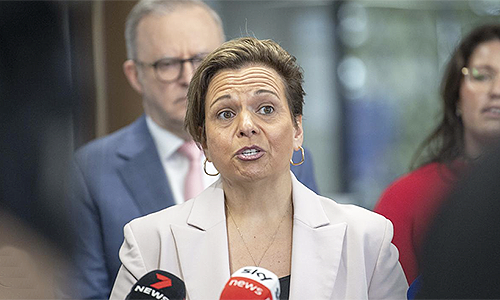Accepting the leadership of the SNP on Monday, John Swinney said his political priority as Scotland’s seventh First Minister would be the eradication of child poverty. If he is sincere in his desire to achieve this ambition, then Scotland’s economic growth – just 0.2 per cent last year – needs be a great deal better.
As soon as Swinney gets his feet under the First Ministerial desk, he must throw open his doors to Scotland’s business leaders and show them the love his party has been withholding for the last decade.
Shortly after the SNP won its first Scottish parliamentary election in 2007, new First Minister Alex Salmond fired off a chummy letter to a major player in Scottish business. Salmond, then leader of the SNP, wished the recipient to know not only that he was watching his latest deal closely but that the First Minister’s office was ready to assist with the process.
Five years later, Salmond performed a whiplash-inducing reverse-ferret. He regretted ever writing the letter. It had been a terrible mistake
The reason for the then First Minister’s sudden volte face was understandable. Salmond’s letter had been addressed to Sir Fred Goodwin – at the time of the missive’s delivery, chief executive of the Royal Bank of Scotland and negotiating the takeover of Dutch bank ABN-Amro – and now the banker was being stripped of his knighthood.
The SNP’s relationship with business is as weak as it’s ever been
A year after Salmond’s election victory, RBS stood on the brink of collapse. Had the UK government not stepped in with a £45 billion bail-out, the bank’s implosion might have crashed the UK economy. Goodwin, once a business hero, became a pariah, the focus for public and political anger and so it was hardly surprising Salmond suddenly wanted nothing to do with him.
The truth is that there was a huge amount of hypocrisy among those opposition politicians who taunted Salmond over his offer of assistance to Goodwin. No mainstream politician – either at Holyrood or Westminster – had criticised Goodwin as the RBS rapidly expanded under his leadership. Rather, all were perfectly happy to associate with and encourage him. Goodwin was a success to be celebrated right up until the moment he became a failure to be shunned.
Throughout the many decades during which the SNP was a fringe party, a frequent – and entirely legitimate – criticism was that its leaders neither understood nor cared about the priorities of business. This was a perfectly understandable state-of-affairs. Down the years, a series of influential business figures had spoken about their opposition to Scottish independence and the SNP had done little – other than do dismiss their concerns – to engage.
Sure, there was the occasional outlier – the Stagecoach tycoon Brian Souter, for example, who was as regular donor to the SNP throughout Salmond’s years in charge – but the majority of serious businessmen willing to speak out on the constitutional question were firmly of the view that Scottish independence was a bad idea.
In advance of the SNP’s first Holyrood election victory in 2007, Salmond made a real effort to build bridges between his party and Scotland’s wealth creators.
This charm offensive – backed up with presentations by SNP economists in boardrooms across Scotland – may not have encouraged many business leaders to line up behind Salmond when it came to the independence question, but he did persuade even the staunchest unionists in the Scottish business community that he took seriously their needs.
Salmond’s letter to Goodwin was – when he wrote it – proof that he saw the importance of good relationships between business and political leaders.
The fragile new relationship between the Scottish nationalists and business was to take a battering during the 2014 referendum campaign. Salmond burned another bridge every time he felt compelled to dismiss the concerns of any high-profile figures who dared question the wisdom of breaking-up the Union. By the time he’d lost that referendum, Salmond’s diplomatic skills had deserted him. Increasingly frustrated that things weren’t going his way, his attacks on critics and narrative of victimhood rendered him petty and ridiculous.
Salmond’s successor, Nicola Sturgeon, who took office in 2014 had a radically different approach to the business world: she pretended it didn’t exist. During the Sturgeon years, when the Scottish government’s twin obsessions were winning the right to run a second referendum and legislating on ‘social justice’ issues, business was neglected by the SNP.
In recent years, a resurgent Scottish Labour party has been wooing business leaders, hundreds of whom have met with both Scots party leader Anas Sarwar and Sir Keir Starmer at events across the country.
Neglected by both Nicola Sturgeon and Humza Yousaf, the SNP’s relationship with business is as weak as it’s ever been. The next First Minister must make a priority of fixing that and ensuring his government understands – and can swiftly respond to – the needs of employers.









